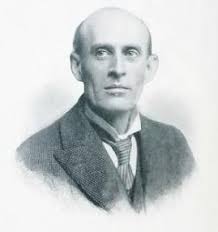At The Door

Known for his lyrical and long-form verse, Percy Bysshe Shelley was a prominent English Romantic poet and was one of the most highly regarded and influential poets of the 19th century. Born on August 4, 1792—the year of the Terror in France—Percy Bysshe Shelley (the “Bysshe” from his grandfather, a peer of the realm) was the son of Timothy and Elizabeth Shelley. As the elder son among one brother, John, and four sisters, Elizabeth, Mary, Margaret, and Hellen, Percy stood in line not only to inherit his grandfather’s considerable estate but also to sit in Parliament one day. In his position as oldest male child, young Percy was beloved and admired by his sisters, his parents, and even the servants in his early reign as young lord of Field Place, the family home near Horsham, Sussex. Playful and imaginative, he devised games to play with his sisters and told ghost stories to an enrapt and willing-to-be-thrilled audience.